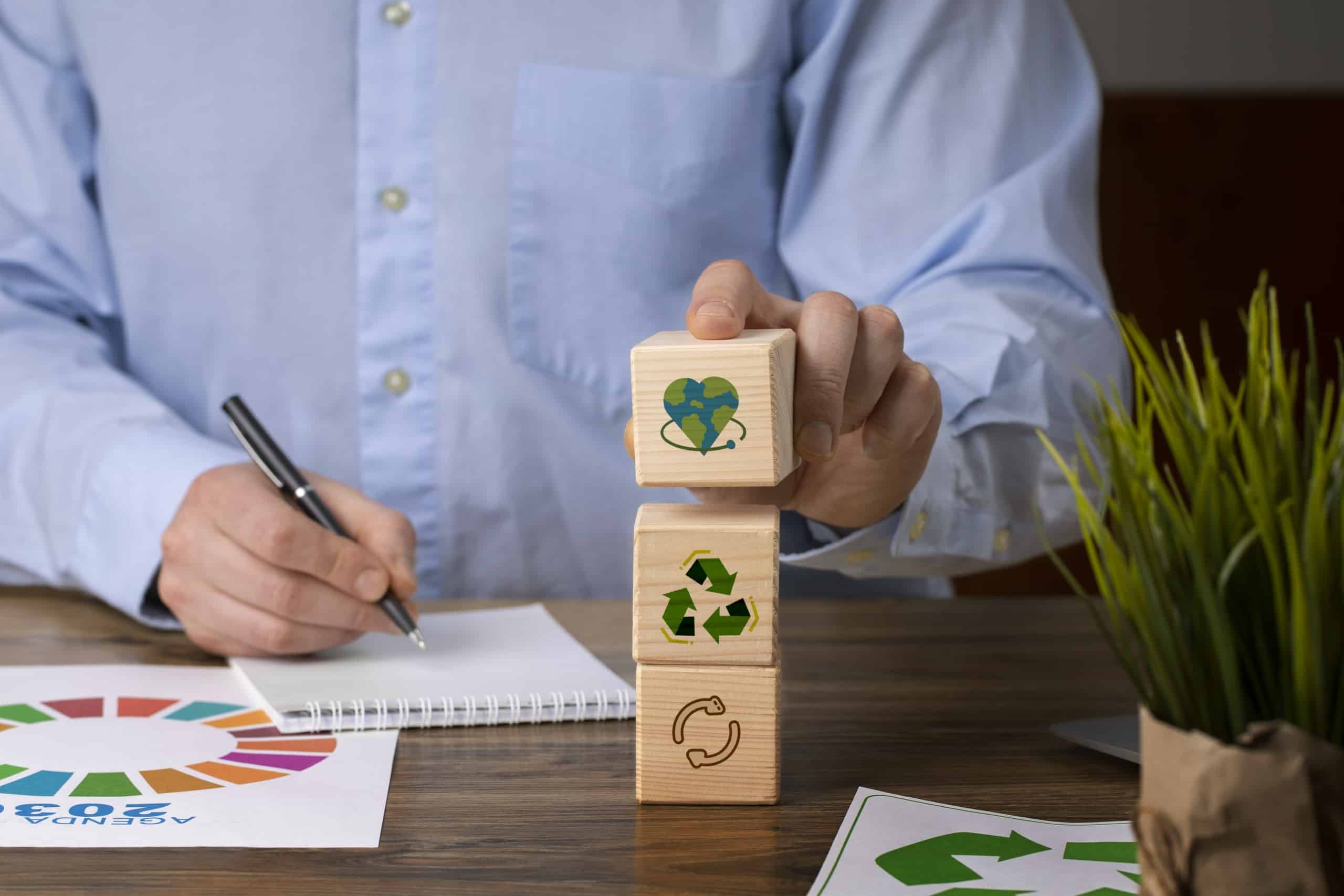The Growing Demand for Biodegradable Wet Wipes
The market for biodegradable wet wipes has grown significantly in recent years, mostly due to rising consumer awareness of environmental problems and the damaging impact of conventional wipes on the environment. There is a movement toward sustainable goods as more people become aware of the effects of plastic pollution. Conventional wet wipes, which are often composed of synthetic materials and take decades to degrade, add a considerable amount of trash to landfills and frequently cause environmental contamination with microplastics. Customers are searching for substitutes that reflect their beliefs of environmental responsibility and sustainability as a result of this increased knowledge.
Consumers now are more aware than ever and are actively seeking items that not only suit their practical demands but also show their commitment to a greener lifestyle. Since biodegradable wet wipes decompose more rapidly than traditional wipes when disposed of appropriately, they provide an appealing alternative. Customers who are concerned about the environment and want to leave as little of an ecological impact as possible will find this waste reduction and the usage of plant-based products appealing. Wet wipes manufacturers that put a high priority on biodegradable materials may take advantage of this growing market niche and draw in clients that consider sustainability while making selections.
In addition to consumer preferences, the regulatory environment is also shifting to favor sustainable practices. All throughout the globe, governments are pushing for the use of biodegradable goods and enforcing stronger laws against single-use plastics. Biodegradable wet wipes benefit from these rules because they encourage wet wipes manufacturers to develop and meet new criteria. In addition to avoiding possible fines, wet wipes manufacturers who invest in sustainable formulations may establish themselves as industry leaders in the expanding eco-friendly sector, winning their customers’ confidence and loyalty.
Furthermore, using biodegradable wet wipes has advantages beyond only lowering waste. Compared to conventional synthetic materials, biodegradable materials—such as bamboo and organic cotton—are manufactured using less water and energy and are derived from renewable resources. As customers become more concerned about the environmental effect of their purchases, this increases their attractiveness even more. By selecting biodegradable wet wipes, customers support a circular economy that repurposes and reuses materials, resulting in a more sustainable lifespan.
To sum up, the increasing need for biodegradable wet wipes may be attributed to changing consumer perceptions of environmental responsibility and sustainability. A growing number of people are choosing environmentally friendly products that are consistent with their beliefs as awareness of plastic litter grows. Furthermore, the encouragement of sustainable practices by regulations is opening doors for creative product creation. All of these elements are working together to change the wet wipes industry, opening doors for wet wipes manufacturers that use sustainable formulas and biodegradable materials.
Innovative Sustainable Formulations
Wet wipes are evolving at an accelerating rate because to creative, sustainable formulations that make use of cutting-edge technology and environmentally beneficial ingredients. Wet wipes have historically been mostly composed of synthetic fibers, which has led to issues with sustainability and environmental contamination. However, wet wipes manufacturers are moving toward plant-based and biodegradable substitutes as public awareness and regulatory pressure grow. This shift isn’t just a fad; rather, it’s an essential reaction to the increasing need for ecologically conscious and functional sustainable goods.
The use of biodegradable materials like bamboo, organic cotton, and other plant-based fibers is one of the biggest advancements in sustainable formulations. For example, bamboo is a very renewable resource that grows quickly without the need for fertilizer or pesticides. It’s a great option for personal care products because of its inherent antibacterial qualities. Similarly, organic cotton is farmed without hazardous chemicals, giving a soft, hypoallergenic choice for delicate skin. Not only do these natural materials function well in terms of texture and absorbency, but they also decompose more rapidly in landfills, which greatly lessens their environmental effect.
To improve the biodegradability of their goods, businesses are investigating cutting-edge processing methods in addition to using sustainable raw ingredients. Water-based adhesives and biodegradable preservatives are examples of innovations that enable wet wipes manufacturers to produce wipes that meet environmental requirements while remaining useful. For instance, some companies are now employing surfactants made from plants rather of those generated from petroleum, which increases the product’s total biodegradability. These developments guarantee that the wipes may organically disintegrate, giving nutrients to the land instead of causing pollution, while still meeting customer performance needs.
Incorporating the ideas of the circular economy into the production process is another significant development in sustainable formulation. Companies are starting to implement plans that give careful consideration to every stage of a product’s life, from obtaining raw materials to disposing of them. For example, some businesses are encouraging customers to return soiled wipes for recycling or appropriate disposal by instituting take-back programs. In addition to cutting waste, this strategy gives customers a feeling of belonging and accountability, giving them the confidence to support environmental initiatives.
Moreover, these ecological compositions are enhanced by the creation of creative packaging options. Wet wipes’ total environmental effect is lessened when they are packaged in environmentally responsible ways using recyclable or biodegradable materials. By reducing their use of plastic and choosing packaging that supports sustainability objectives, wet wipes manufacturers may demonstrate their dedication to eco-friendly methods and win over customers who care about the environment.
In summary, cutting-edge sustainable formulations that prioritize plant-based and biodegradable ingredients are revolutionizing the wet wipes market by improving product performance and reducing their negative effects on the environment. Wet wipes manufacturers are creating the groundwork for a more sustainable future by persistently investigating novel materials, processing methods, and packaging solutions. Wet wipes can be both practical and responsible because to this dedication to innovation, which also fits with the larger push toward environmental stewardship and satisfies the rising need for eco-friendly goods.
Meeting Regulatory Demands
Global legislative frameworks are placing a greater emphasis on sustainability and the decrease of plastic waste as environmental concerns grow. The wet wipes business is undergoing transformation as a result of these rules, which are forcing wet wipes manufacturers to modify their goods and procedures in order to meet new requirements. Fulfilling these legislative requirements offers businesses a chance to build customer trust, improve their brand image, and contribute to a more sustainable future. It’s not only about complying with the law.
Stricter laws on single-use plastics are being implemented by governments, which has an immediate effect on the wet wipes sector. A growing number of nations are starting to charge or outlaw goods made of non-biodegradable materials. To reduce plastic pollution, for example, the European Union has established rules that include steps to limit the use of certain single-use items. Because of this, wet wipes manufacturers need to restructure their goods so that they are biodegradable and can break down organically in a fair amount of time. This change presents companies as accountable participants in the battle against environmental deterioration in addition to being compliant with legal requirements.
Regulatory agencies are concentrating more and more on product labeling and openness in addition to law. These days, customers want comprehensive information on the sustainability and ingredients of the goods they buy. Companies may be required by regulations to offer truthful labeling that emphasizes claims of biodegradability and the environmental effect of their goods. In addition to avoiding legal ramifications, wet wipes manufacturers that make sure these standards are followed gain reputation and confidence from more sophisticated customers.
Furthermore, working with a variety of stakeholders—such as suppliers, researchers, and environmental organizations—is often necessary to satisfy regulatory requirements. Businesses are collaborating to create new materials and procedures that meet sustainability guidelines. To produce novel biodegradable fibers or test novel formulations that improve biodegradability, for example, certain wet wipes manufacturers are collaborating with academic institutes. In the end, this cooperative approach may help the wet wipes manufacturers and the environment by facilitating the identification of more practical and long-lasting solutions.
Companies have to anticipate new rules in addition to adhering to current ones. Governments will probably keep enforcing tighter rules on goods as the emphasis on sustainability increases, particularly on those that add to the plastic pollution problem. Wet wipes manufacturers may future-proof their operations and keep ahead of regulatory changes by making proactive investments in sustainable practices today. In addition to reducing risk, this insight enables businesses to stand out in a crowded market where sustainability is becoming more and more important.
In conclusion, one of the most important parts of the wet wipes industry’s transition to sustainability is satisfying regulatory requirements. Wet wipes manufacturers are forced to modify their goods and procedures in order to comply with the increasingly stringent laws that governments are imposing on single-use plastics and encouraging transparency. Through adopting sustainability, working with stakeholders, and planning for future requirements, businesses may improve their reputation, gain the confidence of customers, and help create an industry that is more ecologically conscious. This proactive strategy helps the larger shift toward sustainability that is changing consumer tastes and market dynamics in addition to adhering to legislative obligations.
The Environmental Impact
Wet wipes’ effects on the environment have come under more scrutiny recently as concerns about waste management and plastic pollution have grown in popularity. Conventional wet wipes have long been criticized for their harmful impact on the environment since they are mostly comprised of synthetic materials. These goods have the potential to cause significant landfill trash when incorrectly disposed of, and they may even find their way into streams and endanger aquatic ecosystems. Knowing how traditional wet wipes affect the environment highlights how vital it is to switch to biodegradable wipes that lessen these negative impacts.
The contribution of conventional wet wipes to plastic pollution is one of the most urgent environmental challenges. Non-biodegradable fibers like polyester and polypropylene, which decompose slowly in landfills, are included in a lot of wet wipes. These items add up and exacerbate the rising problem of plastic trash, endangering both animals and natural environments. Plastic garbage may injure or even kill animals if they consume it or get caught in it. Furthermore, these plastics pose hazards to human health and marine life when they degrade into tiny microplastics that enter the food chain.
Biodegradable wet wipes, on the other hand, provide a more ecologically friendly alternative by drastically reducing waste and pollution. These items are made from natural materials that decompose more swiftly and safely when disposed of properly, such as bamboo, organic cotton, and other plant-based fibers. Biodegradable wet wipes break down into harmless parts when thrown, replenishing soil with essential nutrients instead of piling up in landfills. In addition to relieving strain on waste management systems, this move toward biodegradable materials encourages a circular economy that repurposes and replenishes resources.
Furthermore, compared to conventional wipes, the manufacturing of biodegradable wet wipes often results in reduced carbon emissions. Compared to synthetic fibers, sustainable materials like bamboo and organic cotton take less energy and resources to develop. For example, bamboo is a more sustainable alternative since it grows quickly and may flourish without the need of fertilizers or pesticides. By employing renewable resources and adopting eco-friendly production techniques, wet wipes manufacturers may further minimize the environmental imprint of their goods, contributing to a cleaner, healthier earth.
Biodegradable wet wipes provide advantages for the environment that go beyond lowering carbon emissions and waste. Customers may actively encourage sustainable practices and businesses to promote eco-friendly solutions by selecting biodegradable choices. This customer demand has the potential to spur more industry innovation by encouraging wet wipes manufacturers to spend money on R&D to create even more environmentally friendly goods and procedures. This makes the switch to biodegradable wet wipes more than simply following regulations—rather, it’s a part of a larger trend toward ethical consumption and environmental responsibility.
In conclusion, wet wipes’ negative environmental effects are a serious issue that emphasizes the need for the sector to adopt more environmentally friendly procedures. Conventional wipes endanger habitats and animals and are a major source of plastic waste and pollution. But the advent of biodegradable substitutes offers a chance to lessen these negative consequences by providing goods that safely break down and promote a circular economy. Wet wipes manufacturers and customers may collaborate to lessen the environmental impact of wet wipes, promoting a healthier world for coming generations, by adopting sustainable materials and practices.





